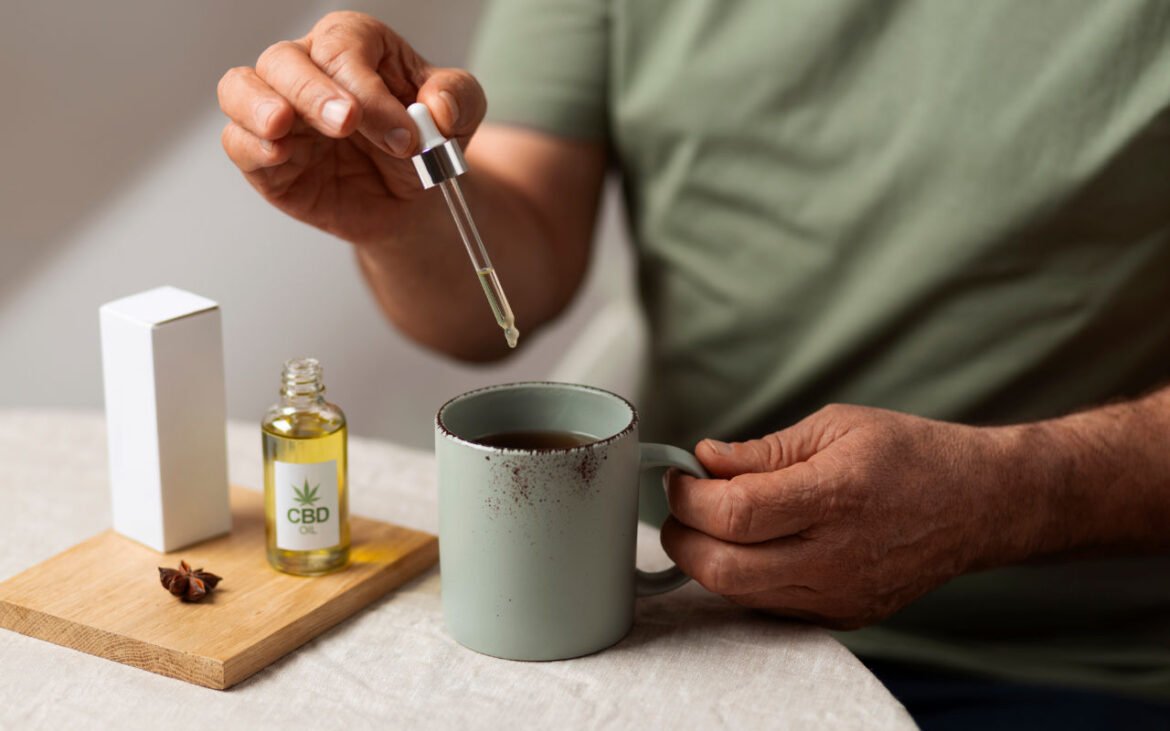Have you ever wondered why some people seem to age gracefully while others struggle with health issues as they get older? The secret isn’t in expensive treatments or miracle cures—it’s in the power of lifetime health habits that compound over decades to create extraordinary results.
Think about it: every single day, you’re making hundreds of small decisions that either support your long-term wellbeing or chip away at it. That morning cup of coffee, the stairs you take instead of the elevator, the extra hour of sleep you prioritize—these seemingly insignificant choices are actually building blocks of your future self.
The truth is, developing sustainable health practices isn’t about perfection. It’s about consistency, patience, and understanding that your body is designed to thrive when given the right conditions over time. Let’s explore how you can harness this power to create a foundation for lifelong vitality.
Why Lifetime Health Habits Matter More Than Quick Fixes
Here’s something most people don’t realize: your health span matters more than your lifespan. What good are extra years if they’re filled with chronic pain, medication dependence, and limited mobility? Research from Harvard Health shows that people who maintain just five key lifestyle habits can add more than a decade to their lives—and those extra years are typically healthier, more active years.
The magic happens in the compound effect. Just like compound interest in your savings account, small daily health investments grow exponentially over time. A 20-minute walk today might seem insignificant, but multiply that by 365 days, then by decades, and you’re looking at thousands of hours of cardiovascular strengthening, stress reduction, and mental clarity.
But here’s where most people go wrong: they focus on dramatic overhauls instead of sustainable shifts. They’ll commit to two-hour gym sessions they can’t maintain, or restrictive diets that leave them miserable and eventually lead to binging. The secret isn’t in the intensity—it’s in the consistency.
The Foundation: Understanding Your Body’s Natural Rhythm
Your body operates on predictable cycles and thrives on routine. When you align your habits with these natural rhythms, everything becomes easier. Your circadian rhythm, for instance, influences when you feel most energetic, when you naturally want to eat, and when your body is primed for rest and recovery.
This is why morning routines are so powerful. Starting your day with intentional health practices—whether it’s hydration, movement, or mindfulness—sets a positive tone that cascades throughout your day. Research from the NIH demonstrates that people who establish consistent morning routines report higher energy levels, better mood regulation, and improved decision-making throughout the day.
The key is working with your body, not against it. Instead of forcing yourself into habits that feel unnatural, start by observing your current patterns. Are you naturally more active in the morning or evening? Do you prefer larger meals or smaller, frequent ones? Building on your existing preferences makes new habits feel less like work and more like natural evolution.
Building Your Personal Health Habit Stack

Think of habit stacking as creating a domino effect of positive behaviors. You attach a new habit to an existing one, creating a chain reaction that becomes automatic over time. For example, “After I brush my teeth in the morning, I’ll do five minutes of stretching” or “After I finish lunch, I’ll take a 10-minute walk.”
This approach leverages your brain’s existing neural pathways. Brown Health research shows that habit stacking requires significantly less willpower than trying to establish completely new routines from scratch.
Start small—ridiculously small. If you want to build a meditation habit, start with just two minutes. Want to eat more vegetables? Add one extra serving to a meal you already enjoy. The goal isn’t to transform overnight; it’s to create such easy wins that consistency becomes inevitable.
Remember, sustainable habits feel almost boring. They should be so integrated into your routine that you barely notice you’re doing them. The dramatic transformations you see on social media often aren’t sustainable because they require constant motivation and willpower—resources that naturally fluctuate.
The Power of Preventive Care in Your Health Strategy
Most people think of healthcare as something you do when you’re sick. But the smartest approach is treating your body like a high-performance vehicle that needs regular maintenance to run optimally. Preventive care isn’t just about annual check-ups—it’s about daily practices that keep your systems running smoothly.
This includes obvious things like regular exercise and balanced nutrition, but also less obvious habits like managing stress, prioritizing sleep quality, and maintaining social connections. Studies from Matsu Regional show that people who focus on prevention rather than treatment enjoy significantly better quality of life scores and spend less on healthcare costs over their lifetime.
Think of it this way: you can invest 30 minutes a day in prevention now, or potentially spend hours in doctors’ offices and dealing with health complications later. The choice might seem obvious, but it requires a shift from reactive thinking to proactive planning.
Preventive care also means listening to your body’s early warning signals. Chronic fatigue, digestive issues, frequent headaches, or mood changes aren’t just normal parts of aging—they’re often your body’s way of telling you something needs attention before it becomes a bigger problem.
What Does Science Say About Longevity Habits?
The research is clear: certain lifestyle factors have disproportionate impacts on both lifespan and healthspan. The famous Blue Zones studies identified five regions where people regularly live to 100 with remarkable health and vitality. Despite different cultures and environments, these populations share common lifestyle patterns.
They move naturally throughout the day rather than doing formal exercise. They eat mostly plant-based diets with moderate portions. They have strong social connections and sense of purpose. They manage stress through faith, meditation, or community practices. And they prioritize sleep and rest as non-negotiables.
What’s fascinating is that these aren’t extreme practices—they’re sustainable lifestyle choices that become second nature over time. You don’t need to live in Sardinia or Okinawa to adopt these principles. You can create your own Blue Zone environment wherever you are.
Research shows that people who adopt even three of these lifestyle factors see significant improvements in biomarkers associated with aging, including inflammation levels, cardiovascular health, and cognitive function.
Creating Your Daily Wellness Blueprint
Your daily routine is your health blueprint—it’s where transformation actually happens. But instead of overwhelming yourself with a complete overhaul, focus on optimizing the transitions between activities. These micro-moments are where powerful habits can take root.
Morning Foundation: Start with hydration before coffee, five minutes of movement or stretching, and setting one positive intention for the day. These simple practices activate your parasympathetic nervous system and create momentum for better choices throughout the day.
Midday Reset: Use lunch as an opportunity to re-energize, not just refuel. Step outside if possible, practice deep breathing, or have a genuine conversation with someone. These practices help regulate cortisol levels and prevent afternoon energy crashes.
Evening Wind-Down: Create a transition ritual between your active day and rest time. This might include dimming lights, avoiding screens for an hour before bed, or practicing gratitude. Quality sleep is when your body does most of its repair and recovery work.
The goal isn’t perfection—it’s progress. Some days you’ll nail your routine, others you’ll barely manage the basics. Both are completely normal and part of the process. What matters is returning to your practices consistently over time.

Nutrition as Your Body’s Daily Medicine
Food isn’t just fuel—it’s information for your cells. Every meal is an opportunity to either support your body’s natural healing processes or create inflammation and stress. But this doesn’t mean you need to follow a restrictive diet or eliminate foods you enjoy.
The most sustainable approach focuses on addition before subtraction. Instead of cutting out foods, first focus on adding more nutrient-dense options. Add vegetables to meals you already enjoy. Include protein with every meal to stabilize blood sugar. Stay hydrated throughout the day.
Mediterranean-style eating patterns consistently show up in longevity research because they’re sustainable, delicious, and anti-inflammatory. This includes plenty of vegetables, healthy fats like olive oil and nuts, moderate amounts of fish and poultry, and minimal processed foods. But you don’t need to follow any diet perfectly—just move in that direction consistently.
Listen to your body’s hunger and fullness cues. Eat when you’re truly hungry, stop when you’re satisfied rather than stuffed. This simple practice can regulate your metabolism and improve your relationship with food better than any restrictive diet plan.
Movement That Doesn’t Feel Like Exercise
The best exercise is the kind you’ll actually do consistently. For most people, this isn’t grueling gym sessions or complicated workout routines. It’s finding ways to move that feel natural and enjoyable.
Strength training is non-negotiable as you age because muscle mass naturally declines after age 30. But this doesn’t mean you need a gym membership. Bodyweight exercises, resistance bands, or even heavy gardening can maintain muscle strength and bone density.
Cardiovascular health benefits from any activity that elevates your heart rate consistently. This could be dancing, hiking, swimming, or simply taking brisk walks while listening to podcasts or music you enjoy.
Flexibility and balance become increasingly important for preventing falls and maintaining independence. Yoga, tai chi, or simple stretching routines can significantly improve quality of life as you age.
The key is variety and consistency over intensity. Your body adapts to whatever you do regularly, so mixing different types of movement prevents plateaus and reduces injury risk. Aim for something active most days, but don’t stress about perfect adherence to any specific program.
Managing Stress for Long-Term Resilience
Chronic stress is perhaps the most underestimated threat to long-term health. It contributes to inflammation, disrupts sleep, affects digestion, and can accelerate aging at the cellular level. But stress management isn’t about eliminating stress—it’s about building resilience to handle life’s inevitable challenges.
Mindfulness practices don’t require hours of meditation. Even five minutes of focused breathing or body scan meditation can activate your parasympathetic nervous system and reduce cortisol levels. Game-changing stress management techniques can be done anywhere.
Physical movement is one of the most effective stress relievers because it helps metabolize stress hormones like cortisol and adrenaline. A short walk, some stretching, or even dancing to your favorite song can shift your nervous system state quickly.
Social connections provide emotional support and perspective during difficult times. Prioritize relationships that energize rather than drain you. Sometimes this means setting boundaries with toxic relationships or making effort to nurture positive ones.
Sleep quality is when your body processes stress and consolidates memories. Creating a consistent sleep routine, managing screen time before bed, and creating a cool, dark sleep environment can dramatically improve your stress resilience.
The Role of Community in Sustaining Health Habits
Humans are social creatures, and our health behaviors are heavily influenced by the people around us. This is why joining communities aligned with your health goals can be so powerful. Whether it’s a walking group, cooking club, or online fitness community, surrounding yourself with people who share similar values makes healthy choices feel normal and enjoyable.
Accountability partners can provide motivation during difficult times, but choose wisely. The best accountability comes from people who support your progress without judgment when you have setbacks. Look for cheerleaders, not critics.
Family dynamics play a huge role in sustaining health habits. Including family members in your health journey—cooking together, taking walks, or practicing gratitude—creates a supportive environment where everyone benefits.
Professional support from healthcare providers, nutritionists, or fitness professionals can provide personalized guidance and catch potential issues early. But remember, you’re the CEO of your health—professionals are advisors, not dictators.

Building Mental and Emotional Wellness
Physical health and mental health are inseparably connected. Taking care of your emotional wellbeing isn’t soft or optional—it’s fundamental to your overall health and longevity. Mental wellness practices are habits just like physical ones, and they require the same consistency and patience to develop.
Gratitude practices have been shown to improve mood, sleep quality, and even immune function. This doesn’t require journaling if that doesn’t appeal to you. Simply taking a moment each day to acknowledge something you appreciate can shift your brain’s default patterns toward positivity.
Purpose and meaning provide motivation to take care of yourself even when you don’t feel like it. Whether it’s career goals, family relationships, creative pursuits, or community service, having reasons beyond yourself to stay healthy creates powerful intrinsic motivation.
Learning and growth keep your brain plastic and engaged throughout life. This could be learning new skills, reading challenging books, or having deep conversations with people who think differently than you. Mental stimulation is like exercise for your brain.
Frequently Asked Questions
How long does it take to form a lifetime health habit?
Research shows that simple habits can form in 18-254 days, with an average of 66 days. However, complex health habits often take 3-6 months to feel automatic. The key is consistency, not perfection—missing one day doesn’t restart the process.
What’s the most important health habit to start with?
Sleep quality is often the foundation that makes other habits easier. When you’re well-rested, you have better decision-making abilities, more energy for physical activity, and better appetite regulation. Start by improving your sleep hygiene before tackling other areas.
How do I stay motivated when I don’t see immediate results?
Focus on how you feel rather than how you look. Better energy, improved mood, and enhanced mental clarity often appear before physical changes. Keep a simple log of non-scale victories like better sleep, increased energy, or improved mood.
Can I develop healthy habits if I have a busy schedule?
The busier you are, the more you need efficient health habits. Focus on high-impact practices that don’t require much time: walking meetings, meal prepping on weekends, bodyweight exercises during commercial breaks, or meditation apps during commutes.
What should I do if I keep falling back into old patterns?
Setbacks are normal and expected. Instead of starting over, analyze what triggered the relapse. Was it stress, boredom, social situations, or lack of preparation? Adjust your approach based on what you learn, and remember that progress isn’t always linear.
Taking Action: Your Next Steps
The beauty of lifetime health habits is that you can start implementing them right now, regardless of your current age or fitness level. You don’t need special equipment, expensive programs, or perfect conditions. You just need to begin.
Choose one habit from this article that resonates with you and commit to it for the next seven days. Not forever—just seven days. Make it so simple that it feels almost silly not to do it. Maybe it’s drinking a glass of water when you wake up, taking a five-minute walk after lunch, or doing three deep breaths before bed.
After seven days, assess how it felt. Was it easy to maintain? Did you notice any benefits? If yes, continue for another week. If it felt forced or unnatural, adjust it until it fits your lifestyle better.
Remember, perfection is the enemy of progress. The person who walks 10 minutes a day for 20 years will be far healthier than someone who runs marathons for six months and then quits. Your future self will thank you for the small, consistent choices you make today.
The science is clear: developing and maintaining lifetime health habits is one of the most powerful investments you can make in your future wellbeing. These practices don’t just add years to your life—they add life to your years. And the best time to start? Right now, with something so small and simple that it’s impossible to fail.
What’s the one habit you’ll commit to starting today? Your journey to lifelong vitality begins with that first small step.




































